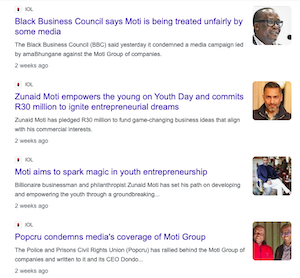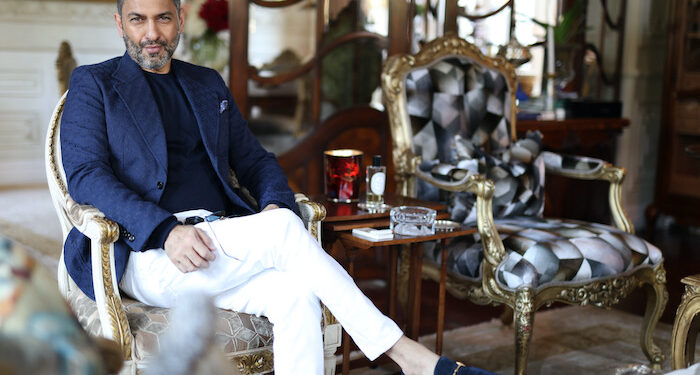It is an indictment on the government and some civil society groupings that a High Court judge believes parts of the media, and investigative journalists in particular, are the best line of defence against corruption in both State Capture V1 (Gupta Leaks) and the current State Capture 2.0.
In his judgment in the case the Moti Group brought against investigative outfit, amaBhungane, Gauteng High Court Deputy Judge President Roland Sutherland, said, “In contemporary South African society, there could be a cogent argument advanced that such activity is an essential good without which our country cannot crawl out of the corrupt morass in which we find ourselves.”
The judgment follows the Moti Group’s attempts to muzzle amaBhungane following the leaking of documents to the investigative journalists. The Moti Group’s application for a gag order took place ex-parte and in-camera, with amaBhungane being unaware of the move and unable to oppose it.
Judge Sutherland was scathing in his verdict. “The elephant in this case is not press freedom or a violation of privacy. Rather, it is the most egregious abuse of the process of court. It is manifest that the order granted on 1 June should have never been sought ex-parte, still less granted,” he said.
“Nothing that has legitimately been put before me in the papers filed for reconsideration offers a justification for seeking the order on an ex-parte basis. This is a sufficient reason to set aside the order in its entirety,” he added. Sutherland set aside the order, and awarded costs to amaBhungane.
 “What this whole saga has demonstrated is that our courts are vulnerable to a Blitzkrieg offence – not just to a Stalingrad defence. And our media is just as vulnerable,” amaBhungane’s Sam Sole said in a newsletter following the verdict.
“What this whole saga has demonstrated is that our courts are vulnerable to a Blitzkrieg offence – not just to a Stalingrad defence. And our media is just as vulnerable,” amaBhungane’s Sam Sole said in a newsletter following the verdict.
“Moti has been able to procure himself an enormous level of access and spin – which, even where it is not paid for, simply barges over the weak ethical and professional barriers that much of our media maintain. Moti has given every indication that he’s not going to back down.
“Amabhungane will need to bolster its financial resources to resist this onslaught. The courts – along with scores of amaBhungane supporters – have stood up for the right and proper functioning of the media in a democratic society.”
As Media Monitoring Africa pointed out, “Sutherland also came out in favour of a journalist’s right to hold and use leaked information when it is in the public interest. He affirmed that pre-publication censorship could only be used in extreme cases and journalists should be allowed as a rule to protect their sources”.
Critical victory
Director of Media Monitoring Africa, William Bird, added: “It’s a critical victory for media freedom and a significant slap down for a SLAPP suit with costs being awarded to the amici as well. We hope the ruling also serves to dissuade similar efforts to silence journalists. There are legitimate fora for cases against media to be dealt with, and we hope these will be drawn on in future.”
Media Monitoring Africa and the Campaign for Free Expression joined the matter as amicus curiae.
“The original order concerned us greatly as it seemed that the judge was abandoning the courts’ protection of free media, but this powerful ruling has reaffirmed our faith in the protection of our constitutional rights. This is a resounding victory for media freedom,” said Anton Harber of the Campaign for Free Expression. “Moti will have to defend himself in the public arena – and that is how it should be.”
Sole asked, in his response to the verdict, “So where to from here?
“Worryingly, the Moti Group’s chief executive Dondo Mogajane went on Radio 702 yesterday (Monday) evening to declare that this was only the first round in the legal battle. Attempting to spin the judgement in its favour, he told Bruce Whitfield the Moti Group had not sought a gagging order.”
Gagging order
But the fact, said Sole, is that under the now-overturned interdict, “we were not allowed to publish from the documents, or even access the documents. This, the judge said, amounted to prior restraint which is a gagging order.
“Bizarrely, Mogajane also claimed that the Moti Group ‘did not go behind closed doors’. Fact: The original interdict was obtained ex-parte and in camera. That means we were not told about the court hearing, we weren’t given an opportunity to respond in court, and every other member of the public was barred from attending. That is the very definition of behind closed doors.
“He finished by saying that ‘if anything is found untoward, the media should take us on’. On this point, at least, we agree: we plan to continue now that our hands have been untied.”
Read more: Weaponising the law against journalists is killing our democracies
Read more: Media organisations condemn former SA president’s SLAPP suit against journalist














